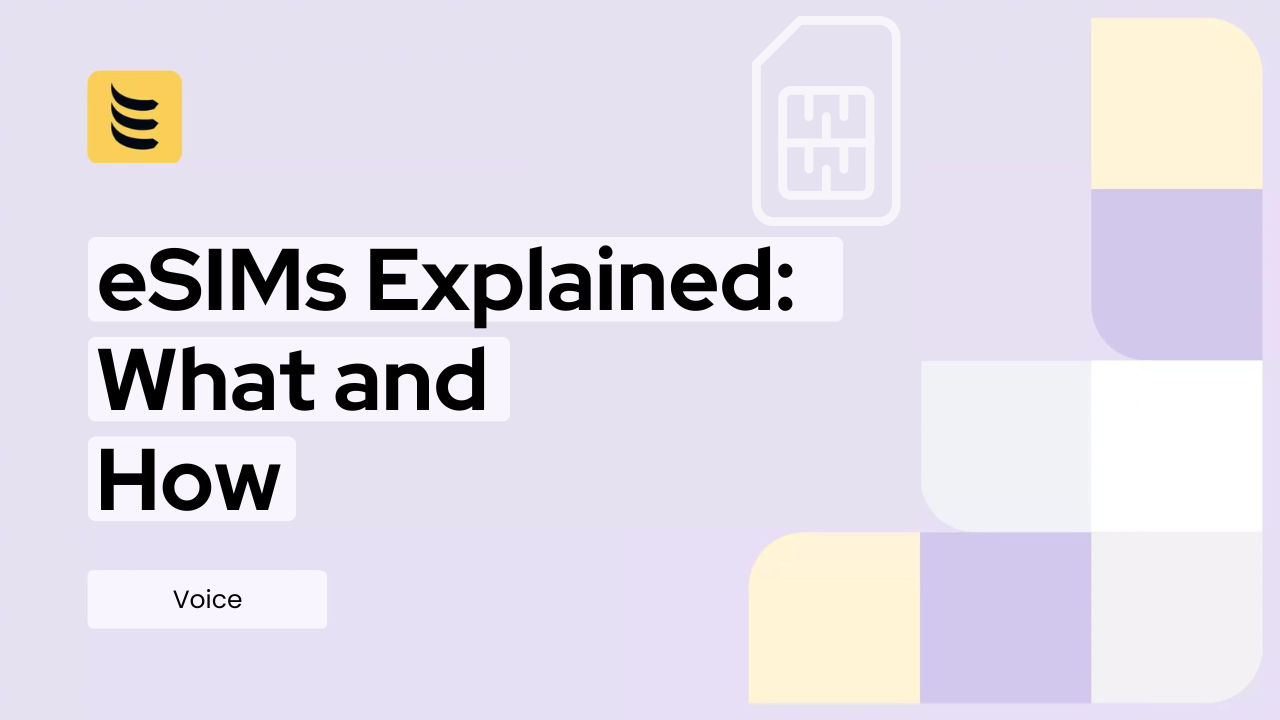VoIP is rapidly becoming the gold standard for voice termination and telephony, both for businesses and individuals, but few people outside of the sector understand many of its terms.
For example, when we talk about VoIP providers, there are multiple distinct groups: Tier 1 Carriers, Tier 2 Carriers, Tier 3 Carriers, and Wholesalers. Each tier provides a distinctly different level of service, even if the result is identical to the user.
This guide will break down each type of VoIP provider, their roles, and why it matters in building a robust telecommunication solution.
Wholesale VoIP
VoIP wholesalers, such as IDT, are entirely distinct from the ‘tiered’ carriers. Wholesalers do not provide infrastructure or maintain networks. Instead, they buy large amounts of ‘time’ on tiered carrier networks, enabling them to obtain the best possible prices and assemble a wide variety of packages to suit client needs.
The potential downside of a wholesaler is the lack of direct control over the infrastructure upon which they rely. Still, they make up for this by providing routes using many different carriers, enabling them to deliver incredibly resilient voice termination.
VoIP Providers and Tiers
VoIP providers fall into different categories based on the infrastructure they own, the services they provide, and the geographic reach they offer. Broadly, they are classified into Tier 1, Tier 2, and Tier 3 carriers, with each “tier” serving distinct roles and maintaining different levels of infrastructure control.
Tier 1 Carriers
Tier 1 Carriers are the largest organizations, typically those that own, operate, and control substantial infrastructure and large, robust networks. They are typically defined as carriers who can provide routing to any network on the Internet without additional charge. They maintain reciprocal tariff-free agreements with all other Tier 1 carriers globally.
Tier 1 carriers include large companies such as Liberty Global in the UK, Tata Communications in India, and Deutsche Telekom AG in Germany. In many cases, Tier 1 carriers do not provide carriage directly; instead, they focus on maintaining their infrastructure for use by Tier 2 and 3 carriers.
Tier 1 carriers are the backbone of global communication. They are characterized by extensive infrastructure and the ability to route traffic to any location without relying on other providers. Tier 1 carriers are essential for high-volume, international VoIP traffic due to their:
- Global Reach: Tier 1 carriers can route traffic across the globe.
- Peering Agreements: They engage in peering arrangements, enabling data exchange without extra costs.
- High Reliability: With extensive infrastructure investments, they offer stable, high-quality service.
Tier 2 carriers
Tier 2 carriers include the largest ISP and telecom providers, including Vodafone, Virgin Media, and Sprint Communications.
Tier 2 carriers maintain their networks on a far smaller scale than Tier 1 Carriers. They will have reciprocal peering agreements with some carriers but must purchase transit through a Tier 1 carrier for some or most of their traffic.
Tier 2 carriers operate on a regional or national scale and rely on Tier 1 providers for specific international routes. They maintain significant networks but are not entirely self-sufficient. Characteristics include:
- Limited Peering: Tier 2 providers may have peering agreements with specific Tier 1 carriers for seamless connectivity within certain regions.
- Cost-Effective for Regional Services: They provide cost-effective voice services within specific areas or countries.
- Ideal for Mid-Sized Businesses: Businesses needing reliable connectivity with some international reach often choose Tier 2 carriers.
Tier 3 Carriers
Tier 3 carriers are the smallest and usually most specialized carriers. They do not tend to be large-scale ISPs but instead provide specialist connectivity—usually enterprise data connectivity and data centers.
Tier 3 Carriers purchase IP transit to the Internet from other providers and only maintain the specialist networks they provide for themselves.
Tier 3 carriers are smaller providers, often specializing in niche markets or specific geographic areas. They purchase IP transit from higher-tier carriers and provide targeted services, including:
- Local ISP and Data Center Services: Often focusing on local connectivity, they serve enterprises or remote locations.
- Customization: Tier 3 carriers cater to unique requirements for data connectivity and enterprise-specific applications.
- Cost-Effectiveness for Specialized Needs: While they lack extensive global reach, they are often more affordable for specialized connectivity needs.
Wholesale VoIP Providers
Wholesale VoIP providers, such as IDT Express, represent a unique category. Unlike tiered carriers, wholesalers don’t own the infrastructure. Instead, they buy large amounts of time or bandwidth from multiple carriers, offering flexible, cost-effective VoIP services to their clients. Key benefits include:
- Cost Savings: By negotiating large-scale bandwidth purchases, wholesalers offer competitive rates.
- Flexibility in Routes: Using multiple carriers provides clients with highly resilient and customizable route options.
- Ideal for Enterprises and Service Providers: Wholesale VoIP is often chosen by businesses requiring scalable, flexible options without committing to a single carrier’s infrastructure.
Potential Trade-Off: Since wholesalers don’t control infrastructure, there may be slight variations in quality or reliability depending on the routes they select. However, many top wholesalers carefully curate routes to ensure high uptime and call quality.
Choosing the Right VoIP Provider
The decision to work with a Tier 1, Tier 2, or Tier 3 carrier—or a wholesaler—depends largely on your specific needs:
- For global businesses needing seamless international connectivity, Tier 1 or top-tier wholesalers can be ideal.
- For regional businesses, Tier 2 providers may offer the right balance between cost and connectivity.
- For highly localized needs or specialized connectivity, Tier 3 carriers may be suitable.
Which tier of carrier you select will almost certainly be a result of the type of service you need: those looking for enterprise data connections will usually end up with a Tier 3 provider, and you indeed won’t find a Tier 1 home broadband provider. The tiers are not a ‘ranking,’ more a classification of the services they provide. For VoIP, for example, a wholesaler may provide better VoIP service but will not provide internet connectivity.
Frequently Asked Questions
Q: What’s the main difference between Tier 1, Tier 2, and Tier 3 carriers?
A: The main difference lies in the network infrastructure each carrier maintains and their scope of service. Tier 1 carriers own vast global networks and can route calls anywhere in the world without relying on external providers. Tier 2 carriers have smaller networks that serve regional or national areas and often rely on Tier 1 carriers for international traffic. Tier 3 carriers provide specialized, often localized, services and rely on higher-tier providers for broader connectivity.
Q: Why would a business choose a wholesale VoIP provider over a Tier 1 carrier?
A: Wholesale VoIP providers aggregate services from multiple carriers, which allows them to offer cost-effective and customizable routing options. Businesses often choose wholesalers to gain flexibility in pricing, network redundancy, and a broader range of service options, without needing to deal with the complexities of managing multiple direct carrier agreements.
Q: Can Tier 3 carriers provide the same level of call quality as Tier 1 carriers?
A: Tier 3 carriers may offer high-quality service for specific use cases, but they generally lack the robust, wide-reaching infrastructure of Tier 1 carriers. However, for specialized or local needs, Tier 3 carriers can be an effective solution, especially if they have strong partnerships with Tier 1 or Tier 2 providers to support broader connectivity.
Q: Are wholesale VoIP providers a good choice for startups?
A: Yes, wholesale VoIP providers can be ideal for startups due to their flexible, scalable options. Startups can benefit from competitive pricing, customized packages, and the ability to scale up services as needed without committing to a single carrier’s infrastructure, which might be more costly and rigid.
Q: What are the potential downsides of choosing a wholesale VoIP provider?
A: The main downside is that wholesalers don’t control the underlying infrastructure. This can mean that call quality or reliability may vary depending on the routes they choose or the carriers they partner with. However, top wholesale providers mitigate this by working with multiple high-quality carriers, ensuring resilient and consistent service.
Q: Is a Tier 1 carrier always the best option for large corporations?
A: Not necessarily. While Tier 1 carriers offer unmatched reach and reliability, they may not offer the flexibility that many corporations need, such as cost-effective regional routing or customization. Many large corporations opt for wholesale providers that can use Tier 1 routes but offer more customization and flexibility in pricing.
Q: Can I get VoIP service from a Tier 1 carrier directly as an individual or small business?
A: Typically, Tier 1 carriers don’t offer direct consumer services, as they focus on infrastructure and large-scale traffic routing. Smaller businesses and individual users usually work with Tier 2, Tier 3, or wholesale providers that have retail-oriented packages.
Q: How do I know if a VoIP provider is reputable?
A: Start by looking at their partnerships with established Tier 1 and Tier 2 carriers, as well as customer reviews and testimonials. It’s also useful to check if the provider offers Service Level Agreements (SLAs), which guarantee performance standards, and whether they have a strong customer support team to handle any issues.
Q: Is VoIP suitable for international business calls?
A: Absolutely. In fact, VoIP is one of the most cost-effective solutions for international calls. By choosing a provider with Tier 1 routes or a reputable wholesaler, businesses can ensure high call quality and reliability, even for international traffic.
Q: Are there specific industries where wholesale VoIP providers excel?
A: Wholesale VoIP providers are ideal for industries with high call volumes, such as customer service, call centers, CRM solutions, and companies with global clients. They offer scalable, resilient services that can handle fluctuating demand and provide cost-effective options for extensive voice traffic.
Q: How can I tell if a wholesale VoIP provider will meet my needs?
A: Look for a provider that offers customizable routing options, competitive rates, and reliable customer support. A reputable wholesale provider should also have strong relationships with multiple Tier 1 and Tier 2 carriers, allowing them to offer resilient and high-quality routes.
Additional Resources
To further explore your options and learn more about the VoIP industry, check out these resources:
- Federal Communications Commission (FCC) on VoIP Services – Detailed overview of VoIP regulations and provider requirements in the U.S.
- IDT Express – For more information on wholesale VoIP services and to explore customizable voice termination packages.
- TeleGeography Global Internet Map – An interactive tool to view the global infrastructure maintained by Tier 1 carriers.
- VoIP Review – A site dedicated to comparing VoIP providers based on user reviews, pricing, and features.




